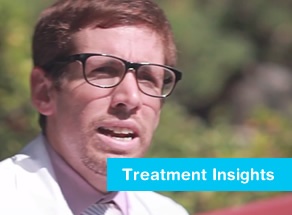Preventive Care
‘The Big C’ offers teachable moment about ‘fighting’ cancer
08/01/2014 07:50pm | 9484 viewsSometimes, breakthroughs must be made not by researchers or individuals but by society. In a recent interview with the Los Angeles Times, City of Hope's Vijay Trisal, M.D., describes a breakthrough that doesn't seem to have occurred: widespread awareness that the outcome of a person’s cancer is not decided by how hard they fight.
Preventive Care
Study: Latinas Have Severe Time Delay between Abnormal Mammogram, Confirmation of Breast Cancer
02/10/2013 10:31am | 9083 viewsLatinas who have an abnormal mammogram result take 33 days longer to reach definitive diagnosis of breast cancer than non-Hispanic white women, according to a new study by the Institute for Health Promotion Research (IHPR) at the University of Texas Health Science Center at San Antonio.
Preventive Care
Hispanic Paradox Evident in New Thyroid Cancer Study
07/02/2014 04:37pm | 8951 viewsMinority, poor patients are more likely than others to be diagnosed with late-stage thyroid cancer, as indicated by a new study published in the Journal of “Endocrinology and Metabolism.“
According to researchers, poor patients from all racial groups had more advanced stages of disease at the time of diagnosis when compared to wealthier counterparts, but minorities fared even worse when compared to non-Hispanic whites as a whole.
Preventive Care
The Importance of Earning the Trust of Latino Patients
24/05/2014 08:27am | 9037 viewsIn this video, Dr. Jeffery Weitzel, Chief of the Division of Clinical Cancer Genetics and Professor, Director, Cancer Screening and Prevention Program Network at City of Hope, discusses how physicians need to adapt their approach to Hispanic patients especially with regards to genetic counseling.
A world-renowned geneticist on cancer and Latinas, Dr. Weitzel shares his thoughts on how important the inclusion of family is when counseling a Hispanic patient. Physicians need to share with them how this will impact their families in order to earn their trust . In the end, he says, if you can win over the heart of a Latina she is more likley to be successful in her treatment and recovery.
Preventive Care
Hispanic Paradox: Latinos Likely to Live Longer When Diagnosed with Cancer, Heart Disease, HIV/AIDS
21/02/2014 01:56pm | 8767 viewsJohn Ruiz, Ph.D., assistant professor at the University of North Texas, Department of Psychology,headed new research which supports the existence of the pseudo-mythical "Hispanic paradox," a debatable phenomenon where poor Latinos experience health that's comparable or better than other ethnicities. The Journal of "Endocrinology and Metabolism" published a new study about poor minority patients being more likely to be diagnosed with late-stage thyroid cancer and living longer, which supports Ruiz's finding.





